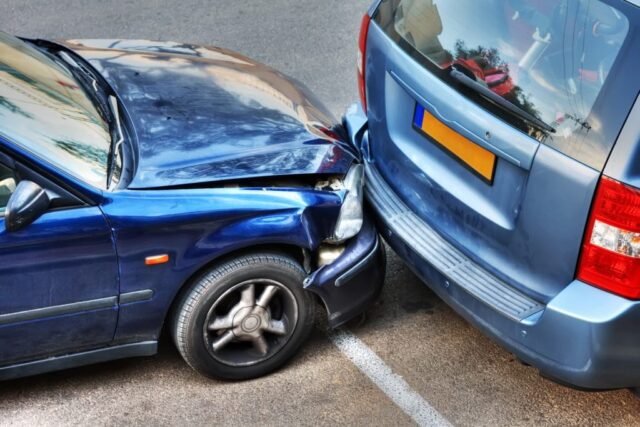
If you have been in an accident and have suffered damages to your car or any other property, you should hire an experienced and qualified car accident attorney. Whether you are seeking compensation from the other driver, an insurance company, or from a negligent party, a car accident attorney can help ensure that you receive all of the compensation that you deserve. To learn more about how they can help you, check this website.
States with No-Fault Laws

No-fault states are those that have insurance rules that limit the right to sue. However, there are some circumstances in which an accident victim can file a lawsuit. This can help to get damages for bodily injury and property damage.
Depending on the state, there may be a threshold that determines the amount of money that an injured party can seek in compensation. It’s important to understand this, especially when dealing with a car accident.
To start, there are three basic types of no-fault states. These are fault based, tort based, and add-on no-fault states. Each type has its own unique rules. For instance, a fault based state is one where you can sue another driver for economic losses. If you’re involved in an at-fault crash, you are legally obligated to make a claim with the other driver’s insurance company.
Tort based states allow you to file a suit against another driver, but only if you meet certain monetary and verbal thresholds. There are some exceptions, such as in New York, where there is no such limitation.
Add-on no-fault states allow you to file a personal injury lawsuit against a driver. Usually, the other party will pay for the injured person’s medical expenses. You may also be able to recover non-monetary damages.
No-fault states are more commonly known as PIP or Personal Injury Protection states. PIP provides an additional level of protection to cover the cost of medical services, but it doesn’t cover the cost of damage to your own car.
Whether you live in a no-fault or tort state, the claims process can be complicated. Fortunately, an Augusta car accident lawyer who knows insurance companies can guide you through the process. In some cases, a car accident attorney will represent you in court. Choosing a car accident attorney who has experience with car insurance providers can make all the difference.
Before making a claim, it’s a good idea to get medical attention. Not only does this create a record of your injuries, but it makes it more difficult for the insurance company to deny you treatment. Also, you should inform your medical provider of your insurance coverage, since this will allow them to bill you directly.
Regulations of Comparative Negligence

When two or more people share fault in an accident, the law of comparative negligence will come into play. The laws of comparative negligence vary from state to state. Depending on the specifics of the case, damages may be awarded. This type of compensation is often considered the fairest and most efficient way to compensate an injured party.
Comparative negligence rules allow a victim to receive damages when he or she shares some portion of the blame for causing an injury. However, the compensation amount is diluted by the percentage of blame attributed to each defendant. In other words, if a plaintiff is found to be 90 percent at fault for an accident, he or she will receive 10 percent of the damages awarded.
Comparative negligence is often used to determine how much an injured driver will be compensated. Some states have adopted a modified form of comparative fault. While this system is similar to the pure comparative fault rule in California, it does not reward extreme negligence.
If an injured driver cannot be fully compensated for an accident, the next best option is to sue the at-fault party. A plaintiff can also seek compensation from an insurance carrier, which may review the details of the accident and make an offer. Once the insurer offers, the injured party can negotiate with the insurer until a settlement is reached.
Comparative negligence is a complex issue, but it does have its benefits. It can help determine a jury’s award in a case involving multiple defendants. Also, it can serve as a legal defense for the defendant.
Comparative negligence is often the most effective system to assign responsibility in car accidents. Although it can be used to apportion blame in a case with more than one defendant, some states have more complicated rules.
For example, some states use the 50 percent bar rule, which prevents plaintiffs from receiving any damages. In other states, the pure comparative fault rule allows a driver to receive damages in a car accident even if the other driver is 99 percent at fault.
Awarding of Punitive Damages

When a person is hurt or killed in a car accident, they may be entitled to punitive damages. Punitive damages are awarded to punish the driver who caused the crash. They are also given to deter others from making the same mistake.
In some cases, a jury will decide whether or not to award punitive damages. If so, the judge or jury will consider several factors including the behavior of the at-fault driver. For example, did the driver know that their actions would cause serious harm to another person?
In order to obtain punitive damages, the injured party must prove that the at-fault party’s conduct was egregious. The degree of egregiousness varies from state to state. However, some states require that the behavior must be “gross negligence”. This means that the defendant knew that their action was reckless and would cause significant harm to the victim or other people.
Punitive damages are rarely awarded in car accidents. This is because judges are wary of frivolous lawsuits. But, if a judge or jury determines that the at-fault party’s act was egregious, they may award punitive damages.
These awards are usually based on the at-fault party’s gross negligence. In the case of an accident involving a drunk driver, the at-fault party may be found to have committed intentional misconduct.
Before you can receive punitive damages, you must first be awarded compensatory damages. Compensatory damages are meant to reimburse you for the costs associated with the car crash. These include lost wages, medical bills, and pain and suffering. Some damages, such as the loss of earning capacity, are considered special damages.
Punitive damages are capped at $750,000. However, in some cases, a jury or judge can exceed this amount.
To determine the amount of punitive damages you are eligible to receive, you should contact an experienced car accident attorney. He or she will be able to determine how much your claim is worth and advise you on how to proceed.
Punitive damages are intended to punish the at-fault party and deter them from doing the same thing in the future. Unfortunately, insurance companies do not care about this.
Establishing Legal Liability for an Accident

If you have been involved in an automobile accident, it is important to know your legal responsibility. This means knowing how to seek compensation for the injuries you have sustained.
Car accidents can have a huge impact on your life. You may have to miss work or take time off to recover. They can also lead to mental health issues, such as depression and anxiety. In addition to causing physical damage, they can leave you with expensive medical bills.
Often, car accidents are caused by defective vehicles. These can fail airbags, brakes, and even cause an accident. If the driver has been negligent, the vehicle’s owner can be liable for any damages that result.
There are many different ways you can pursue compensation for your injuries. Your legal consultant will help you determine how much compensation you are owed. The process usually involves a legal evaluation of the costs of the collision. It is then calculated into a settlement offer.
You can receive compensation for both economic and non-economic damages. Economic damages include damages for the money you lost in the accident. Non-economic damages are emotional, such as pain and suffering.
Compensation for car accidents is usually handled through your insurance provider. Normally, you will receive an offer that covers the cost of any vehicle repairs and hospital bills.
You must report the accident to your insurance provider as soon as possible. If you do not report the incident, other parties will try to deny your claim. As a result, you can expect to spend weeks or months dealing with the aftermath of the accident.
When it comes to making a compensation claim, you will want to understand the terms and how they are used. Your car accident can help you learn more about the legal requirements and how to make an effective case.
If you have been seriously injured in a car accident, you can seek compensation through the court system. To do so, you must prove the other party’s negligence. Obtaining compensation for your injuries can make a huge difference in your life.









